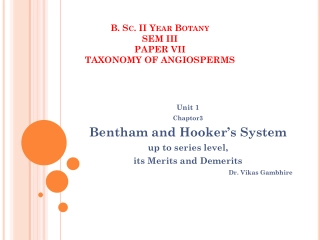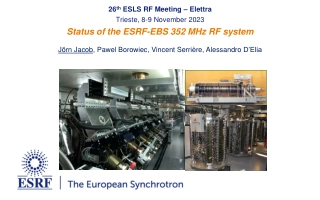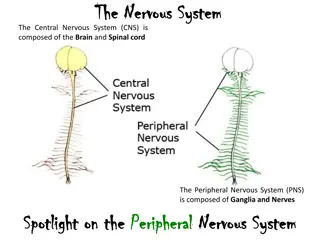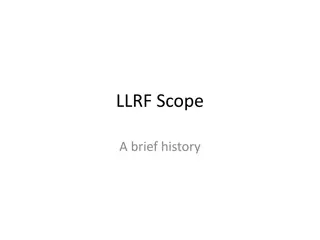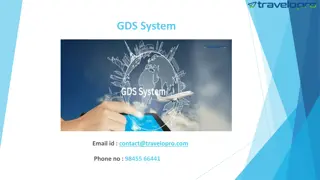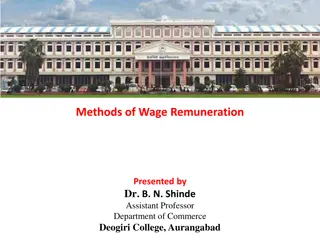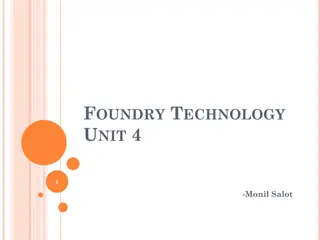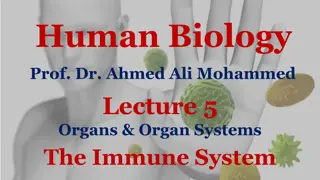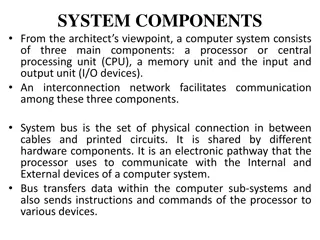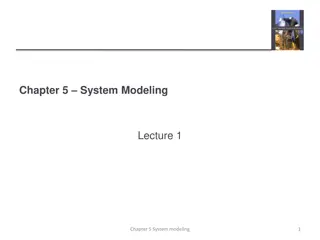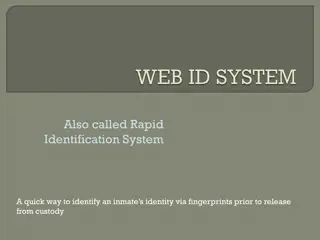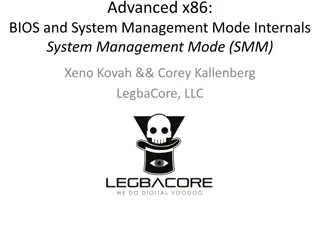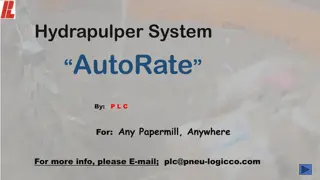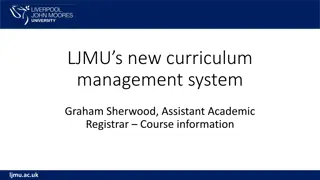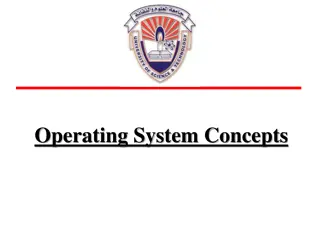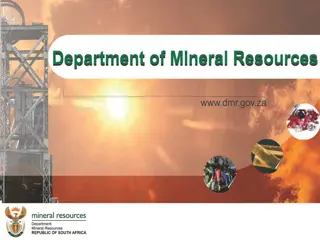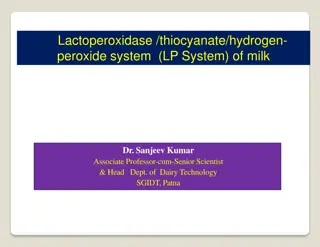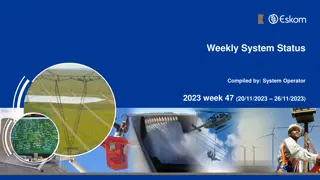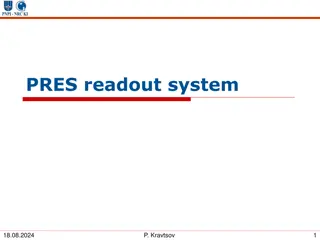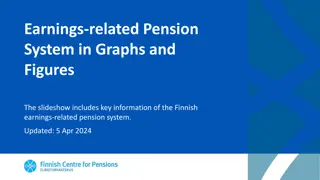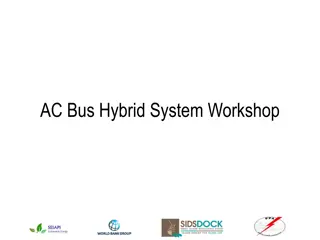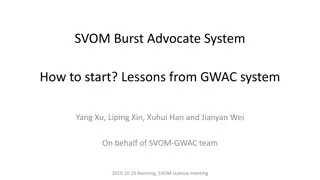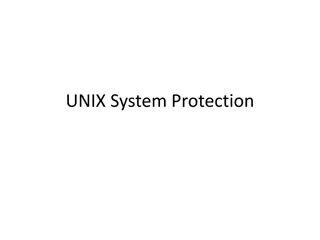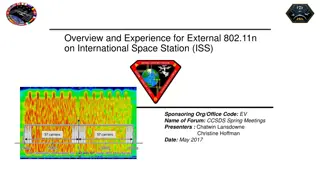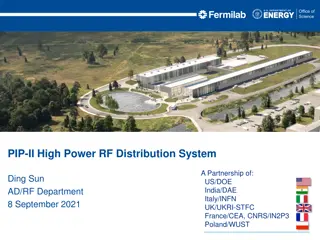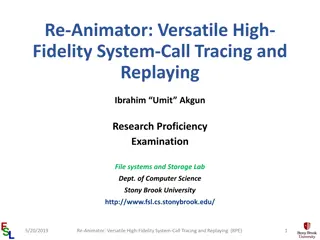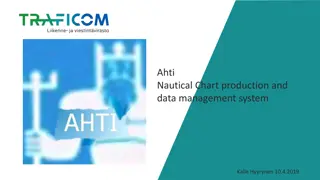Bentham and Hooker's System of Classification in Botany
Bentham and Hooker's system of classification in botany is a natural system based on a large number of characters considered simultaneously. Proposed by British taxonomists George Bentham and Joseph Dalton Hooker, this system categorizes seed plants into classes, orders, families, and genera. It is
2 views • 10 slides
Overview of ESRF-EBS 352 MHz RF System Upgrade at 26th ESL RF Meeting
The 26th ESL RF Meeting held at Elettra in Trieste discussed the status and upgrades of the ESRF-EBS 352 MHz RF system. The meeting covered topics such as the EBS RF layout, HOM damped cavities, RF ECO-Mode, ongoing RF projects, and the replacement of klystrons with SSAs for a 4th harmonic RF system
0 views • 16 slides
adonai software
Adonai college Management System is a cloud-based ERP System that delivers various College and School Management Systems, College and School Management Software, College and School Management System ERP, College and School Management Software System, Online College and School Management Software Sys
3 views • 1 slides
System Models in Software Engineering: A Comprehensive Overview
System models play a crucial role in software engineering, aiding in understanding system functionality and communicating with customers. They include context models, behavioural models, data models, object models, and more, each offering unique perspectives on the system. Different types of system
5 views • 33 slides
The Nervous System: CNS, PNS, SNS, and ANS
The nervous system comprises the Central Nervous System (CNS) and Peripheral Nervous System (PNS), with the PNS further divided into the Somatic Nervous System (SNS) and Autonomic Nervous System (ANS). The SNS controls voluntary movements of skeletal muscles, while the ANS regulates involuntary proc
2 views • 23 slides
The muscular system
The muscular system is a vital organ system that includes smooth, skeletal, and cardiac muscles. It plays a crucial role in locomotion, supporting the cardiovascular system, enabling lung ventilation, regulating fluids, maintaining posture, and generating heat in the body. This system consists of ar
2 views • 16 slides
Overview of LLRF Scope and Development
The LLRF system is responsible for controlling the phase and amplitude of cavities in the linac system. The cost book details the budget for implementing the LLRF system in 155 systems. Adaptations were made to the PEG for delivering and installing the LLRF systems. A schedule outlines the developme
1 views • 8 slides
GDS System
Travelopro Global Distribution System (GDS) is a computerized network system. It is a large computer network which is integrated with 100 of worldwide Airlines and consolidators for enabling transactions between travel agents and travel sites and also used by airlines, hotels, car rentals, railways
4 views • 15 slides
Airline Ticket Reservation System
Travelopro offers a state-of-the-art airline ticket reservation system with a modern, scalable and robust reservations architecture. The airline ticket reservation system has transformed the way people plan and book their flights. This system is designed to make the process of reserving airline tick
2 views • 15 slides
Wage Remuneration Methods Overview
Dr. B. N. Shinde, Assistant Professor at Deogiri College, Aurangabad, presents an insightful overview of methods of wage remuneration including Time Rate System, Piece Rate System, and Combination of Time and Piece Rate System. Time Rate System is the oldest method where workers are paid based on ti
0 views • 16 slides
Foundry Technology Unit 4: Gating and Risering System Overview
In Unit 4 of Foundry Technology, the focus is on Gating System, Risering System, and Quality Control in Foundry. The content covers components of the gating system, considerations for defect-free casting, proper design requirements, and factors affecting the functioning of the gating system. Key top
2 views • 94 slides
The Immune System: Organs, Functions, and Importance
The immune system acts as a defense mechanism against pathogens and infections, comprising various organs, such as the bone marrow, thymus, spleen, white blood cells, antibodies, complement system, and the lymphatic system. It works to recognize and destroy harmful microbes, maintaining the body's h
1 views • 23 slides
Evolution of Land Law Systems in Trinidad and Tobago
Trinidad and Tobago's land law systems consist of the Common Law System and the Registered Land System. The Common Law system governs unregistered land where title passes upon execution and delivery of the deed. In contrast, the Registered Land System confers ownership upon registration and offers c
0 views • 28 slides
Computer System Buses: Components and Functions
A computer system comprises three main components - the CPU, memory unit, and I/O devices connected via an interconnection network, facilitated by the system bus. System buses reduce communication pathways, enabling high-speed data transfer and synchronization between components. Internal buses conn
4 views • 55 slides
System Modeling in Engineering
System modeling in engineering involves developing abstract models to represent a system from various perspectives using graphical notations like UML. These models aid in understanding system functionality, communicating with stakeholders, and documenting requirements for new systems. Existing and p
5 views • 53 slides
Rapid Identification System for Inmate Release
The Rapid Identification System, also called Rapid ID System, provides a quick way to verify an inmate's identity using fingerprints before release from custody. It allows law enforcement agencies, including IPD users under SDSheriff, to log in and access the system. By searching the San Diego AFIS
5 views • 8 slides
System Management Mode (SMM) in x86 Processors
System Management Mode (SMM) is a highly privileged mode in x86 processors that provides an isolated environment for critical system operations like power management and hardware control. When the processor enters SMM, it suspends all other tasks and runs proprietary OEM code. Protecting SMM is cruc
1 views • 26 slides
Revolutionizing Paper Mill Operations with AutoRate System by P.L.C
AutoRate system by P.L.C offers a superior alternative to manual feed rate control in paper mills, addressing issues of operator variability and inconsistent system responses. By utilizing a Virtual Controller based on inherent system values, the system enhances overall consistency and efficiency, r
3 views • 12 slides
Metamodel-based Photovoltaic Monitoring System for Renewable Energies at Hongik University
This project at Hongik University focuses on developing a metamodel-based photovoltaic monitoring system to address the challenges of managing diverse solar monitoring systems in Korea. By utilizing a unified data communication protocol, the system aims to streamline the monitoring process for solar
0 views • 18 slides
LJMU's New Curriculum Management System Project Overview
LJMU's new curriculum management system project aims to streamline course information production and storage by implementing the Courseloop system. The project timeline includes releases for data governance, migration, testing, and training leading up to the system's go-live in September 2022. The p
1 views • 8 slides
Operating System Concepts: Lecture Overview and Services
Exploring the lecture content on operating system concepts, structures, services, system calls, and file manipulation. Delve into the importance of operating system services, error detection, program execution, I/O operations, protection, security, and resource allocation in operating systems. Learn
5 views • 26 slides
Streamlined Mining Application Management System Overview
The mining department has established a comprehensive management system consisting of guidelines, templates, and monitoring tools to ensure transparent processing of applications and accountability in licensing procedures. The system promotes transparency in decision-making, supports mining activiti
0 views • 39 slides
System Sequence Diagrams: Understanding Artifact for System Behavior
System Sequence Diagrams (SSDs) are vital artifacts that visually illustrate input and output events related to a system. They help define system behavior and interactions, making them essential during the logical design phase of software applications. By depicting events in sequential order, SSDs o
3 views • 24 slides
Lactoperoxidase/Thiocyanate/Hydrogen Peroxide System in Milk Preservation
An alternative method for preserving milk using the Lactoperoxidase/Thiocyanate/Hydrogen Peroxide (LP) System has been developed. The system combines indigenous antibacterial components with low doses of chemicals to effectively preserve raw milk. The LP system consists of three main components: Lac
0 views • 30 slides
Weekly System Status Update: Adequacy of National Electricity Supply (Week 47, 2023)
This weekly system status report compiled by the System Operator provides insights into the National Electricity Supply System's adequacy in the medium term. It includes data on historic daily peak system capacity/demand, available dispatchable generation, operating reserve margin, forecast vs. actu
1 views • 14 slides
Particle Readout System Overview
This presentation covers the Particle Readout System for events happening on August 18, 2024, detailing the system requirements, detectors involved such as the Time Projection Chamber (TPC) and Forward Tracker (FT), monitoring devices like Beam Position Monitors (BPM), as well as the Forward Tracker
0 views • 30 slides
Overview of Finnish Earnings-Related Pension System
The slideshow provides key information on the Finnish earnings-related pension system, including figures on social security insurance, pension insurance, basic pension provision, total pension, execution of the pension system, and the process of preparing and implementing pension acts. It covers asp
1 views • 42 slides
Design Overview of AC Bus Hybrid System Workshop
This content provides a walkthrough of the design decisions involved in an AC Bus Hybrid System Workshop, focusing on the use of a generator and PV array. It covers the scenario of a village using a diesel generator, customer requirements, site information, system arrangement, and more to help under
0 views • 51 slides
Future Perspectives for EU Patent System: Granting and Litigation Systems
The future of the EU patent system envisions a high-quality, centralized Granting System under the European Patent Office (EPO) for substantive examination and granting. Coordination with National Patent Offices (NPOs) and European Patent Institute (epi) is key to stimulate inventions and provide ac
2 views • 8 slides
Enhance Your Travel Business with Trawex Travel Booking System
Trawex offers a sophisticated Travel Booking System that can be easily managed by travel agents and corporate travelers. With features like online bookings, payment processing, and customer management, Trawex helps boost profits for your business. The system includes services like Online Hotel Booki
0 views • 15 slides
SVOM Burst Advocate System Development Overview
SVOM, set for launch in 2021-2022, aims to employ Burst Advocate tools, learning from the GWAC system. Challenges and advancements in the BA system development, data collection, login system, real-time validation, and follow-up observations are discussed in detail. The system's key philosophy revolv
0 views • 14 slides
Overview of UNIX System Protection
UNIX System Protection focuses on ensuring security and access control mechanisms within the UNIX operating system. Developed in 1969 by Dennis Ritchie and Ken Thompson at AT&T Bell Labs, UNIX features design elements like a portable API, protection rings, kernel processes, and a trusted computing b
0 views • 12 slides
The Virginia Colony: Early Settlement and Growth
The Virginia Colony, established by the Virginia Company, was the first permanent English settlement in North America. It aimed to find gold and natural resources, leading to the cultivation of tobacco as a profitable cash crop. The colony's economy grew dependent on slavery, with labor encouraged t
0 views • 24 slides
Impact of Land Policies in Georgia: Headright System, Land Lotteries, and Yazoo Land Fraud
Georgia pursued various land policies post-Revolutionary War to allocate land obtained from Native Americans. The headright system granted land to soldiers and white men, aiming to boost population and state power. Land lotteries distributed land through random draws. The Yazoo land fraud scandal ta
0 views • 20 slides
Overview of External Wireless Communication System on International Space Station (ISS)
This presentation covers the overview and experience of implementing an external 802.11n wireless communication system on the International Space Station (ISS). It discusses the existing wireless system, committed users, system architecture, and future challenges. The system provides high data rate
1 views • 18 slides
PIP-II High Power RF Distribution System Overview
The PIP-II High Power RF Distribution System is a collaborative project involving various countries and institutions to develop a sophisticated system capable of efficiently distributing RF power to superconducting cavities. The system consists of multiple distribution lines and components designed
0 views • 28 slides
Long-Baseline Neutrino Facility (LBNF) Primary Beamline LCW System Overview
The Long-Baseline Neutrino Facility (LBNF) Primary Beamline Low Conductivity Water (LCW) System comprises various technical design aspects including system operational scope, major system updates, design requirements, and component summary. It involves the provision of LCW cooling for magnets and po
0 views • 14 slides
Re-Animator: Versatile System Call Tracing and Replaying
Re-Animator is a research project focusing on creating a high-fidelity system call capturing system with minimized overheads. The project aims to capture long-running applications and provide scalable and verifiable system call replaying. It introduces two prototype system call tracing systems and h
0 views • 39 slides
Strategies for Enhancing Extended Producer Responsibility System in Bulgaria
Korea-Bulgaria Knowledge Sharing Program focused on sharing strategies to enhance Bulgaria's Extended Producer Responsibility (EPR) system. The program discusses the current status, performance evaluation, issues, and recommendations related to the EPR system in Korea. It covers topics like beverage
1 views • 38 slides
Ahti Nautical Chart Production and Data Management System Overview
Ahti Nautical Chart Production and Data Management System, led by Kalle Hyyrynen, aims to modernize nautical chart production by utilizing standardized products, improving system technology, and enhancing data management. The project addresses challenges such as outdated technology, integration need
0 views • 7 slides
